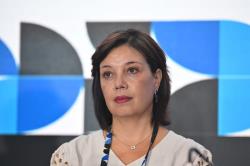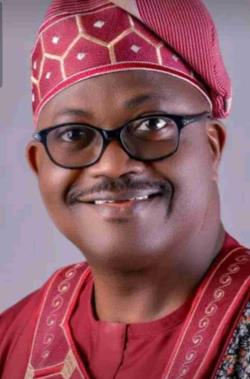Revamping Decision-Making in Digital Governance and the WSIS Framework
CGI.br - Brazilian Internet Steering Committee
Session 212
This session aims to address the gaps and opportunities of the global digital governance ecosystem, especially when it comes to the governance architecture and cooperation, with a special focus on the WSIS framework.
In the last 20 years, the World Summit on The Information Society (WSIS) has been playing the role of being the standard framework for the digital society, for Internet governance and related technologies, as well as a platform to promote the multistakeholder approach and foster collaboration between stakeholders. In recent years, several processes have been launched inside and outside the UN system to advance discussions about global digital governance and especially to improve global digital cooperation. One important example is the Global Digital Compact (GDC), which gathered commitments, proposals and endorsement from a range of States and from multiple stakeholders worldwide. The GDC and other processes have the common objective of bridging gaps in digital ecosystems, strengthening their structures, and moving towards better cooperation and decision-making.
Stakeholders have been perceiving our time as a critical juncture in the global ecosystem, with many processes carrying the potential to heavily impact the Internet, digital technologies and society as a whole. To address such challenges, a broad range of contributions have been pointing to go beyond traditional global divisions, establishing better coordination and a more intense effort in advancing the multistakeholder approach for all spaces and forums, including the multilateral ones. Collaboration, better procedures, and a revamping of the dynamics of interactions and decision making are at the menu of solutions for building a better digital future.
Initiatives such as the NETmundial+10 São Paulo Multistakeholder Guidelines are key for solving the puzzles of our time, for bolstering the governance architecture and decision making. In this session, we expect to discuss this and other efforts, towards building a common base for the decisions to come in the global ecosystem.
In this session, speakers shall address questions like the following ones: 1) How to update the WSIS Action Lines to better reflect emerging and pressing issues and a proper integration with the SDGs? 2) What are the gaps within the WSIS framework and between its different parts, such as the IGF and the WSIS Forum? 3) Does the WSIS framework governance structure follow an adequate multistakeholder approach, for instance as expressed by the São Paulo Multistakeholder Guidelines? 4) How to strengthen the IGF to better respond to the challenges of an improved WSIS process, combined with the GDC implementation and follow-up, and especially to avoid duplication of efforts and promote better coordination?








-
 C1. The role of governments and all stakeholders in the promotion of ICTs for development
C1. The role of governments and all stakeholders in the promotion of ICTs for development
-
 C6. Enabling environment
C6. Enabling environment
One of the greatest challenges ahead in the digital cooperation and Internet governance spaces is the fragmentation of the discussion and decision-making spaces, even within the UN system. It is highly unclear to the community how the WSIS and GDC processes will evolve together. The community fears that, besides the WSIS Forum and the IGF, new spaces will be created for the implementation and follow-up of the GDC process. There is a high risk that these processes and spaces will show superposition and, even worse, will follow different proposals, targets, and outcomes in addressing exactly the same issues of extreme relevance, such as AI, cybercrime and trust, disinformation, environmental impacts, Internet fragmentation, and so on.
Internet governance and digital policy processes for tackling those issues, more than ever, require unprecedented coordination and cooperation among stakeholders to effectively unlock the benefits of the massive transformation brought by the Internet and by ICTs, for everyone, everywhere – and to collaboratively prevent and remediate abuses online and in the digital environment as a whole. But the growing fragmentation of the governance space, and the threats to a true multistakeholder approach - which were evident in the GDC preparation process, for instance - may harm any attempts to follow the right path forward.
While the IGF has a proven record as a focal point for multistakeholder debate on all issues regarding Internet governance and digital policy processes, it is highly unclear whether it will remain relevant in the coming years. The strengthening of the IGF is a must, so that it achieves its goal to its full potential.
This session will address these challenges and discuss concrete contributions deriving from the strengthening of the IGF and of the multistakeholder governance approach.
-
 Goal 4: Ensure inclusive and equitable quality education and promote lifelong learning opportunities for all
Goal 4: Ensure inclusive and equitable quality education and promote lifelong learning opportunities for all
-
 Goal 8: Promote inclusive and sustainable economic growth, employment and decent work for all
Goal 8: Promote inclusive and sustainable economic growth, employment and decent work for all
-
 Goal 9: Build resilient infrastructure, promote sustainable industrialization and foster innovation
Goal 9: Build resilient infrastructure, promote sustainable industrialization and foster innovation
-
 Goal 16: Promote just, peaceful and inclusive societies
Goal 16: Promote just, peaceful and inclusive societies
An inclusive, safe, reliable and trustworthy Internet is a vital infrastructure for the development of countries and societies, in all aspects of current life - economic growth, social inclusion, education, health, decent work, etc. It is vital for including minorities and marginalised communities. For the Internet to continue to thrive, it must remain faithful to the principles that have always governed its development, use, and governance. The multistakeholder approach, in particular, is essential for a continued collaboration among all sectors, in their respective roles and responsibilities, to promote adequate legislation, regulation, and public policies, especially with regard to emerging and potentially disruptive technologies, and to safeguard the Internet infrastructure’s critical properties.